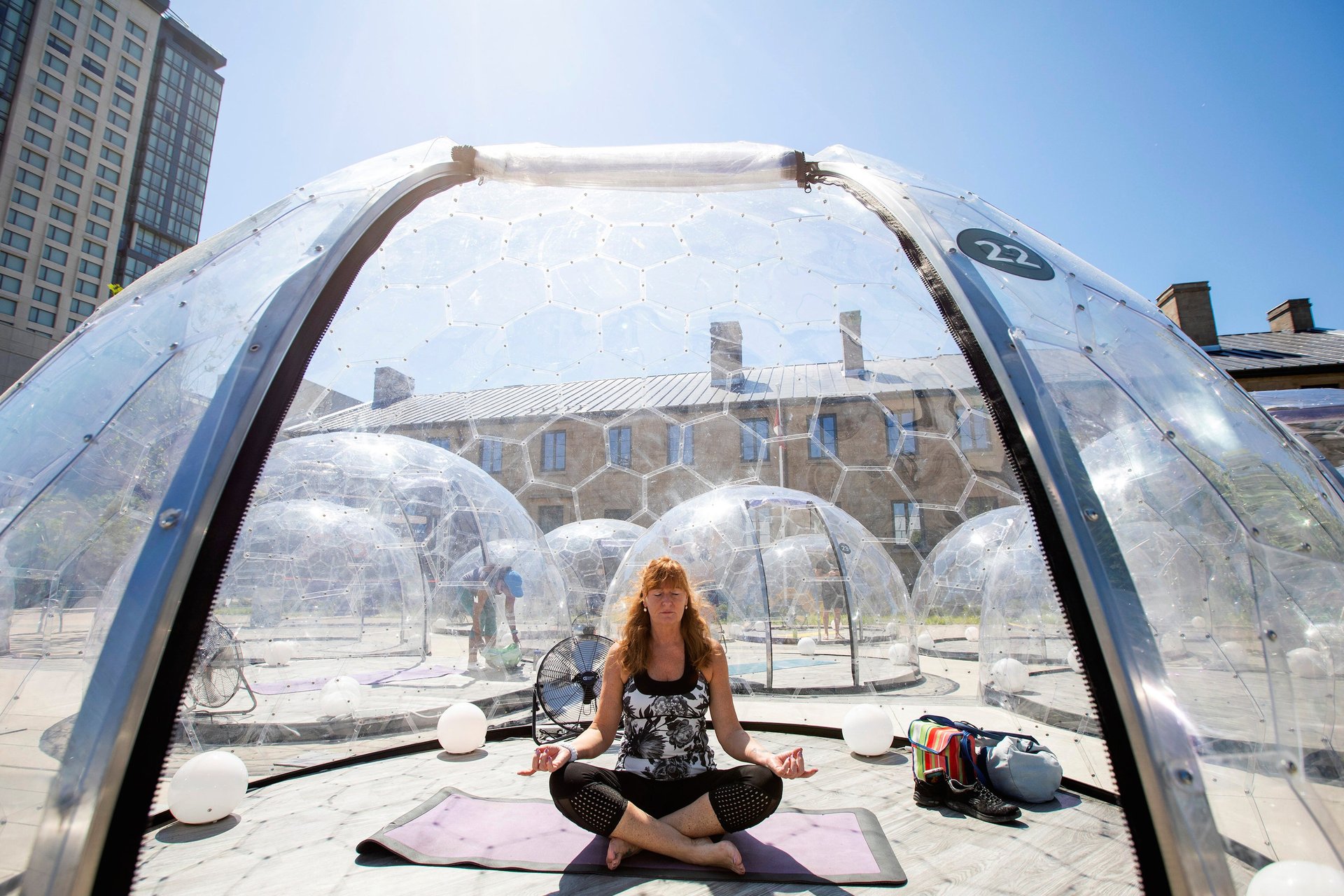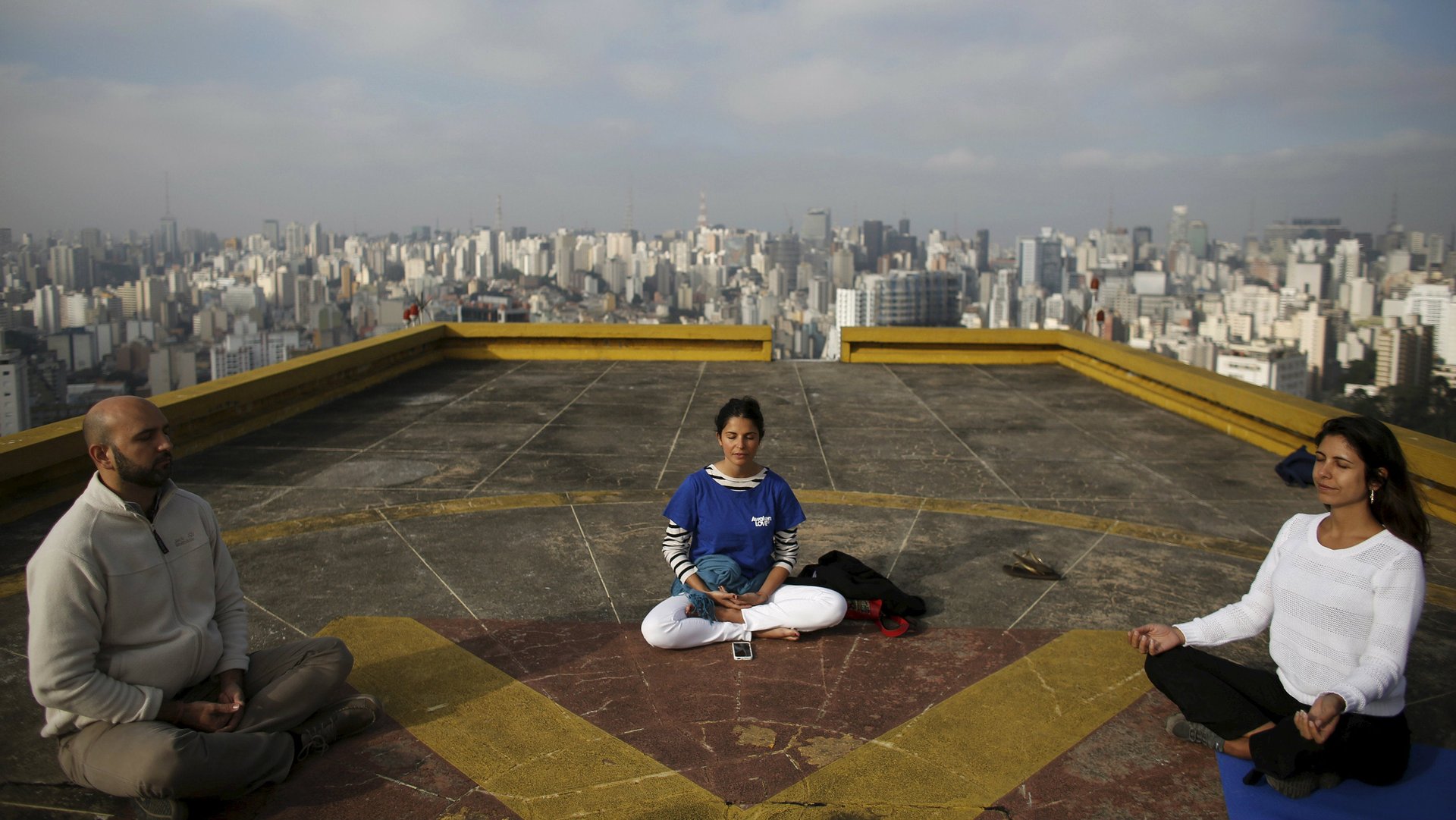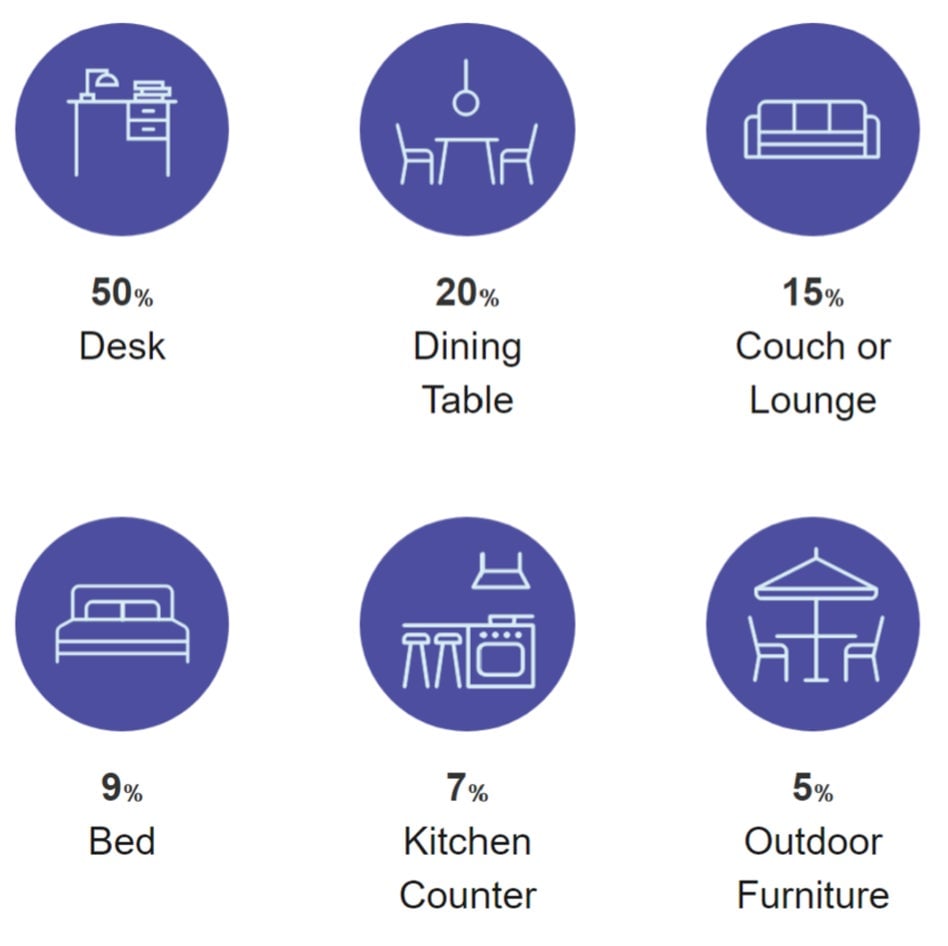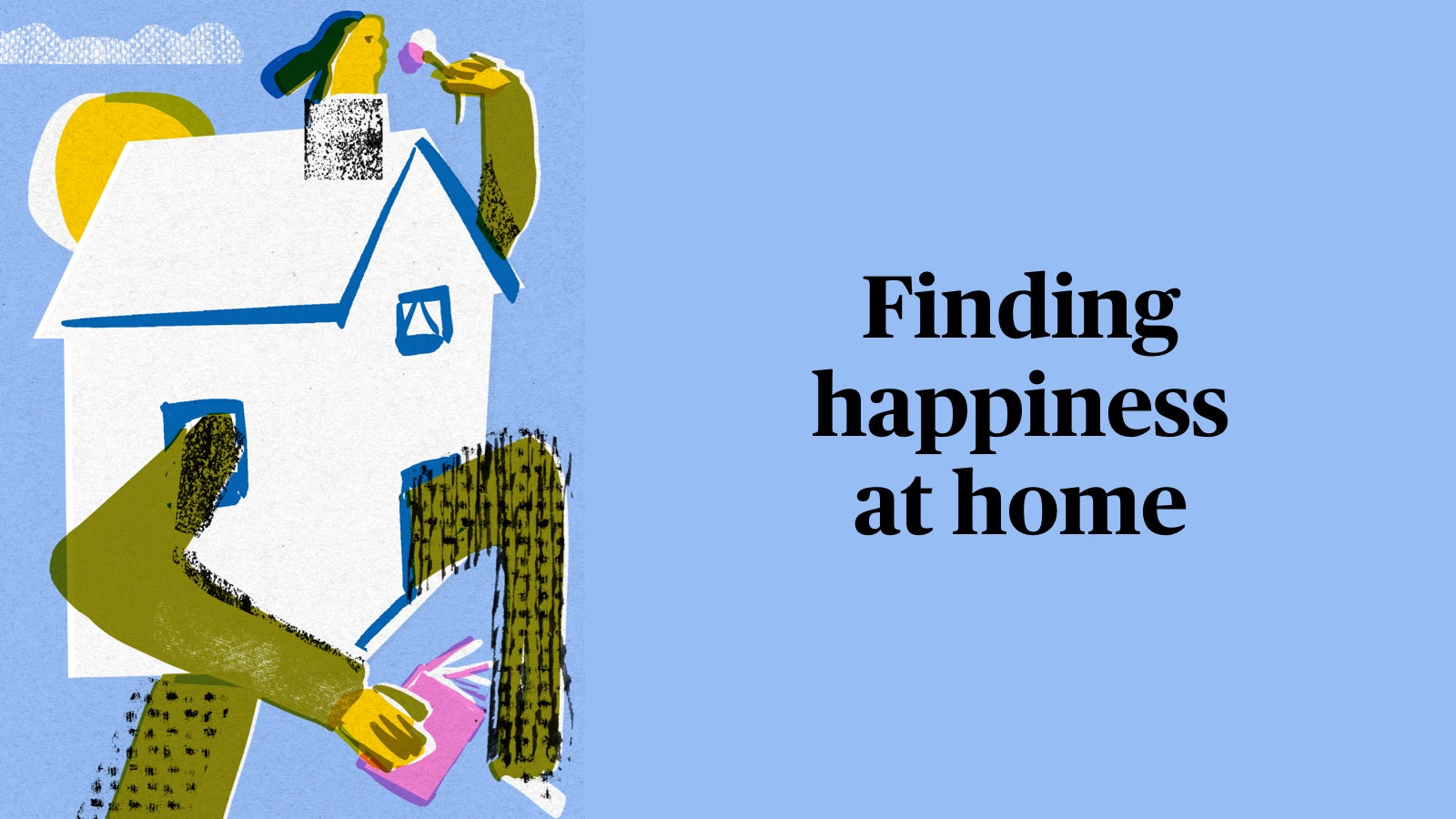Meditate on it
To modern workers everywhere,


To modern workers everywhere,
In 2017, just over a third of US employers offered some form of mindfulness training to workers. By 2018, that percentage was up to 52%, according to a survey of more than 150 firms by the Fidelity Investments and the National Business Group on Health. And in the wake of the Covid-19 pandemic, a whole new wave of companies are offering access to meditation apps like Calm and Headspace as a workplace benefit.
The risk to all of this mindfulness is the possibility that companies will rely on it as a way to anesthetize people to the stresses of work. If, after a 12-hour work day, someone meditates so they can “calm down, go to sleep, and get up tomorrow and do it again,” then the benefits of the practice are beside the point, says Jeff Wilson, author of the book Mindful America and a professor of religious and east Asian studies at Renison University College in Ontario. “What would have been better is for the employer to change your working conditions, rather than giving you free access to a meditation app.”
That said, research suggests that learning to apply mindfulness to our work really can be useful. A 2009 study published in the journal Psychology of Music, for example, asked one group of orchestra musicians to play a piece in the style of a performance they’d previously done—more or less giving them permission to mentally check out. The other group was instructed to play the piece mindfully, taking note of subtle ways they could alter their rendition from past performances. Audiences could tell the difference, and preferred the performance by the latter group.
For knowledge workers, mindfulness can make the difference between a mediocre idea and a great one. “[W]e know the best ideas don’t come under duress,” says Rich Fernandez, CEO of the nonprofit Search Inside Yourself Leadership Institute, which offers mindfulness training programs in more than 50 countries, to corporate clients including SAP.
Purists might knock it, but the workplace is now one of the major places where people first encounter the concepts of mindfulness and meditation. It’s no substitute for flexible hours or a realistic workload, of course. But paired with other forms of support for employees, there can be real benefits.—Sarah Todd

+ Want to delve deeper into the business implications of the mindfulness trend? Quartz members can access a whole field guide to that very topic.
Five things we learned this week
CEOs can take tangible, active steps to fight climate change. Galileo Financial’s Clay Wilkes shares some specific ideas with his fellow business leaders.
You can keep your team engaged when the world is on fire. You might just need to recalibrate things a bit.
You can’t collect unemployment in the US if you quit over Covid-19 safety concerns. But the Biden administration wants to change that.
An increase in America’s unionization rate isn’t a good sign. The number of union jobs is actually falling, along with employment in general.
Considering a career in investor relations? You might want to get familiar with sentiment analysis software.
30-second case study
Jungle Cruise, a ride built at Disneyland in 1955 under the supervision of Walt Disney himself, takes park visitors on a simulated riverboat ride through the jungle, guided by one of Disney’s witty “skippers.” Along the way, they encounter various animals, as well as a group of indigenous people known as the “Headhunter Tribe,” who are depicted as cannibalistic savages and ambush the boat with spears.
The imperialist lens through which passengers were meant to see the indigenous peoples may have been commonplace when Jungle Cruise was introduced—the ride was inspired by the 1951 film The African Queen starring Humphrey Bogart and Katharine Hepburn—but today it’s retrograde and tasteless.
Disney says it’s now ready to reimagine the Jungle Cruise experience with updates that “reflect and value the diversity of the world around us.” This comes several months after Disney said it would rework its iconic Splash Mountain ride, which is based on scenes from Disney’s Song of the South—a 1946 film with such racist depictions of Black Americans in the Reconstruction era that Disney has never made it available to watch on home video.
The takeaway: The complaints about Jungle Cruise and Splash Mountain are not new, and Disney says its Splash Mountain reimagining was in the works as of 2019. But America’s recent reckoning with racial injustice may have forced the company to speed up its schedule—and the Covid-19 pandemic has afforded Disney the ideal moment to get to work. Disneyland in California has been closed since last year, while Disney World in Florida is only open to 35% capacity.
But it shouldn’t take a pandemic to give Disney, or any other company, the time and space required for retrofitting outdated constructs that hamper inclusion. Several other rides at Disney’s various parks have been criticized for being outdated. That comes with the territory for parks that have been in operation for more than a half-century. But if Disney wants to operate them successfully for another 50 years, it will have to make sure—pandemic or not—that they continue evolving to meet modern sensibilities.
The five types of remote workers
A recent report from Steelcase, the office furniture giant, suggests that remote workers tend to fall into one of five personas: The isolated Zoomer, the frustrated creative networker, the overworked caretaker, the autonomy-seeker, and the relieved self-preservationist. Of these archetypes, only the last two fare well with extended periods of remote work.
Perhaps you recognize yourself in more than one of these personas? That’s normal. “It’s important to note that it’s possible for people to associate themselves with more than one of the patterns,” the report states. “They are meant to be extremes that can help us understand the different experiences people have had and what their expectations may be when they return to the workplace.”
Steelcase’s report, based on a global survey of 32,000 workers, also concludes that the most common anxiety about returning to the office comes down to the air quality. And of course a furniture maker would be concerned with our seating situations at home in the meanwhile. Here’s the breakdown of where people are getting their work done at home, according to the survey:

Quartz field guide interlude

Big tech companies are competing to build the smart home of the future, with Amazon, Google, and Apple investing billions of dollars to develop devices that today regularly lose them money. They already hold some market power as a way to search the web or buy products. But they’re really betting big on the future, when smart speakers are expected to be our main point of contact with our automated homes. The firms see these gadgets as the conductors of a symphony of devices that run our residences—and they’ll be important gatekeepers for our search and shopping habits.
Read more about the race for smart speaker dominance, part of our new field guide to finding happiness at home.
Words of wisdom
“If we want to treat them as essential workers, then we need to think about what we can and are willing to do to protect them.”—Yea-Hung Chen, an epidemiologist at the University of California, San Francisco
+ Chen co-authored a new study of California workers showing occupations with the highest risk of death from Covid-19. As Quartz at Work’s Michelle Cheng reports, the findings might have implications for how policymakers think about prioritizing access to vaccines.
ICYMI
At our Quartz at Work (from home) workshop last week, a panel of experts shared practical advice for maintaining or improving workplace morale at the individual and organizational levels—with special consideration for companies trying to do this in remote settings. Quartz members can access the video playback and a detailed recap here.
Not yet a Quartz member? Sign up now for a 7-day free trial.
You got The Memo!
Our best wishes for a productive and creative day. Please send any workplace news, mindfulness tips, and Disneyland ride redesigns to [email protected]. Get the most out of Quartz by downloading our app and becoming a member. This week’s edition of The Memo was produced by Adam Epstein, Heather Landy, Anne Quito, and Sarah Todd.